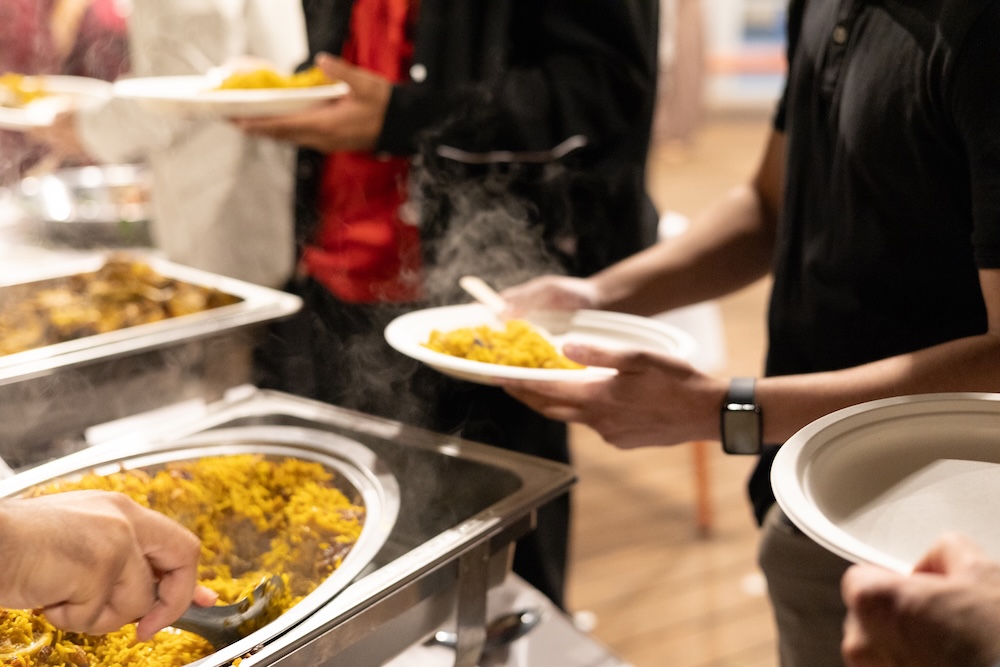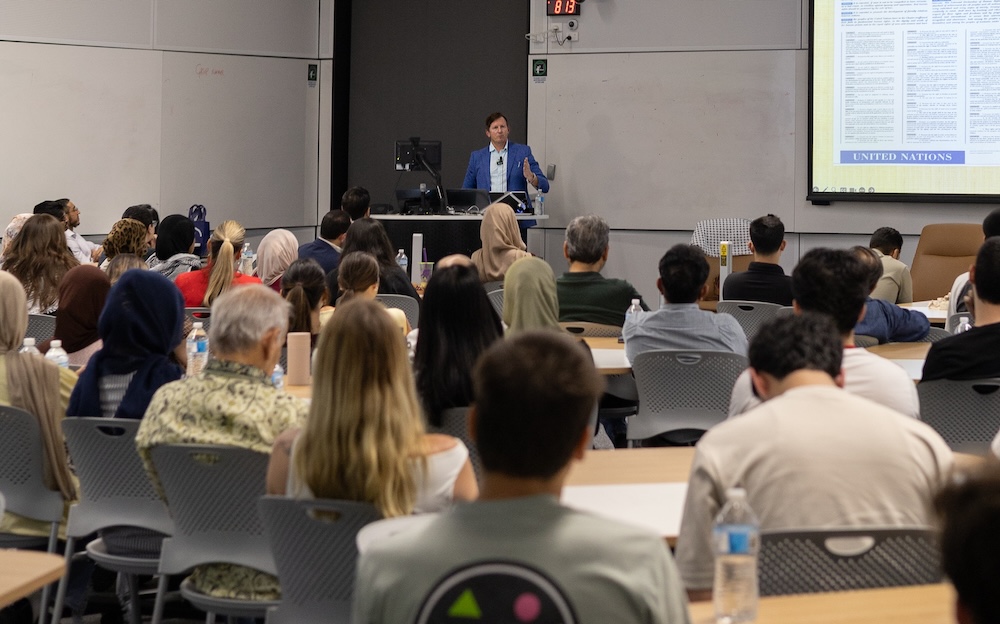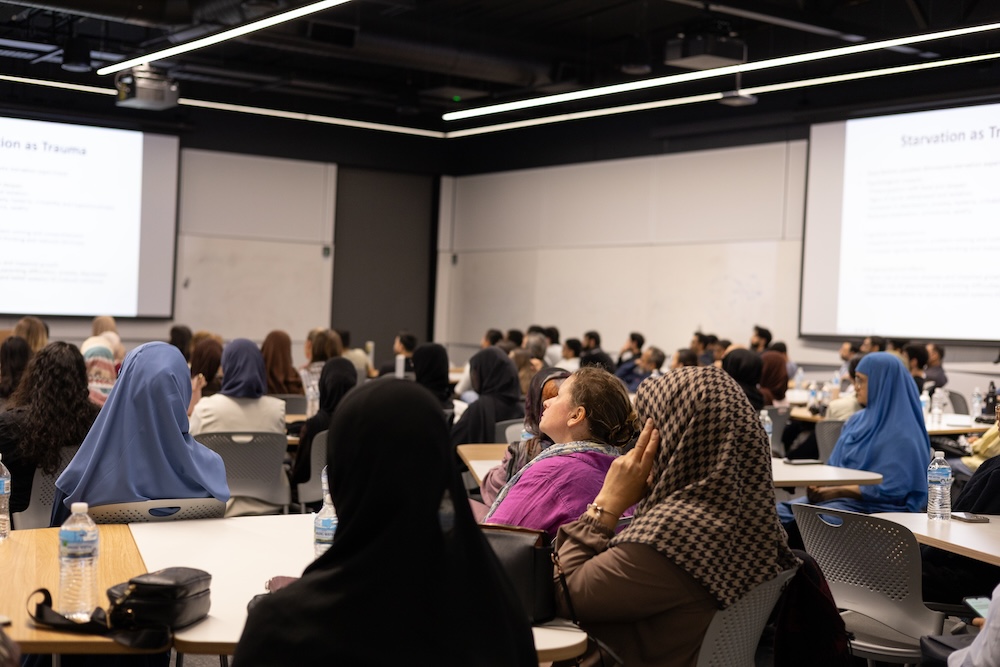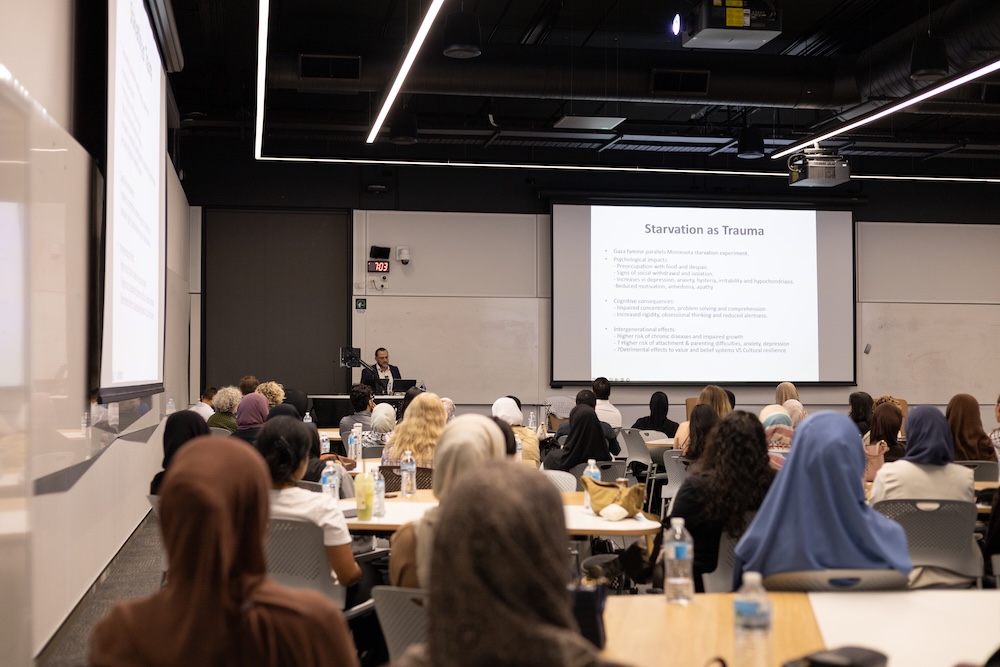The Australian Islamic Medical Association (AIMA) Queensland Student and JMO Wing hosted “Anatomy of a Genocide” at the University of Queensland (UQ) on Saturday 4 October 2025 drawing over 150 attendees passionate about advocating for justice in Palestine and confronting the humanitarian catastrophe unfolding in Gaza.
Held in collaboration with the Griffith University Muslim Students Association (GUMSA), Bond University Muslim Students Association (BUMSA), University of Queensland Muslimah Society, and Queensland University of Technology Muslim Students Association (QUT MSA), the forum united Muslim healthcare students, professionals, and community members around a shared moral purpose: to stand for justice, amplify truth, and reflect on the crisis in Palestine.
The evening’s discussions centred on the realities of healthcare under siege, the psychological toll of continuous trauma, and the legal failures of the international community to uphold justice.
The program was MC’ed by AIMA QLD Secretary and Student Lead Mustafa Hamimi, who contextualised the evening within the collapse of Gaza’s healthcare system, the psychological toll of continuous trauma, and the global failure to uphold justice.
Members of the AIMA Queensland Student Wing, Dina Musameh and Sara Daftsal, introduced the speakers, highlighting their qualifications, experiences, and advocacy, setting an informed, sincere, and reflective tone for the night.
Dr Ahmad Abou-Sweid: Witnessing humanity amid collapse
Dr Ahmad Abou-Sweid, a medical doctor recently returned from a humanitarian mission in Gaza, shared a powerful and deeply human account of working within the ruins of a collapsed healthcare system. Hospitals had become makeshift shelters, corridors served as wards, and families huddled in stairwells while medical teams worked endless shifts with vanishing supplies.
He described colleagues who kept serving despite profound personal loss and communities sustaining each other through small acts of kindness amid devastation. Yet even in ruin, he witnessed something extraordinary: the unwavering resilience of the Palestinian people.
What struck him most, he advocated, was not the scale of suffering but the refusal to surrender dignity. The Palestinian people held onto faith, compassion, and purpose even when everything else had been stripped away. For Dr Abou-Sweid, this was resistance in its purest form, not just survival but the preservation of one’s soul in the face of systematic destruction.
Dr Ghassan Eltatory: Collective trauma and the limits of Western psychology
Psychiatrist Dr Ghassan Eltatory examined the psychological dimension of genocide, describing it as an ongoing, intentional condition that spans generations. Entire families live under siege and loss; children grow up in fear, and parents grieve continuously without closure. This, he explained, is not post-traumatic stress but present-tense trauma with no end in sight.
He outlined how the wounds of genocide are passed down through disrupted families, chronic fear, and the normalisation of oppression. Trauma, he emphasised, is not merely psychological but political and collective, sustained by the absence of justice.
Dr Eltatory critiqued Western psychology for framing suffering as an individual disorder while ignoring the moral and structural forces that create it. He argued that any meaningful response to Palestinian trauma must restore justice, dignity, and spiritual grounding rather than simply manage symptoms. Healing, he explained, can only begin when oppression itself is addressed.
Benedict Coyne: The collapse of international human rights
Human rights lawyer Benedict Coyne delivered a powerful critique of the global legal order. He outlined the history of human rights and the Genocide Convention, tracing how these frameworks were established to prevent the very atrocities now being committed in Gaza.
He argued that international human rights law has become effectively powerless in practice. The same institutions that once promised justice, including the United Nations and the International Criminal Court, have been paralysed by political pressure and structural limitations. Their inability to act decisively, he noted, reveals a system that upholds rhetoric but lacks the courage or capacity to enforce accountability.
Benedict also shared his own advocacy, including representing doctors and humanitarian professionals, visiting Parliament House to push for accountability, and using media and podcasts to educate the public about the legal dimensions of genocide and human rights violations.
Panel discussion and closing reflections
The evening concluded with a panel discussion guided by audience questions submitted through Slido, allowing participants to engage directly with the speakers and explore the intersections between medicine, law, and mental health in the context of genocide.
Guests then gathered over Palestinian catering to reflect, connect, and share their own perspectives on what it means to uphold justice as healthcare professionals. The discussion closed with a collective recognition that advocacy is not an optional extension of medicine, but part of its ethical core.







